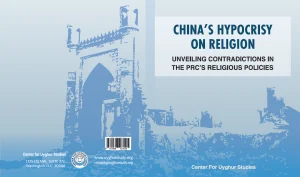In recent months, a striking trend has emerged in Turkey’s mainstream media and on social platforms: an uncritical admiration for China, with some voices declaring “China has won” in the U.S.–China trade war — as if they were cheerleaders for Beijing.
Yet most of those who make such claims possess neither up-to-date data nor geopolitical insight. In reality, since the peak of the U.S.–China trade war in 2018, by 2024, the U.S. has reduced its trade deficit with China by 30% — a clear indicator of long-term strategic recalibration.
The U.S. Isn’t Retreating — It’s Restructuring
China may have seen short-term relief in its trade relations with the U.S., but this is only temporary. Washington continues to restructure its supply chains to reduce dependence on China — particularly in semiconductors, rare earths, strategic technologies, and defense industries. Massive investments are underway, and the U.S. will not ease its stance until the trade imbalance is fundamentally addressed.
And What About Turkey?
What Has Turkey Done in Response to China?
Let the data speak for itself. Instead of taking precautions, Turkey has deepened its economic dependence on China. A comparison of trade figures tells a sobering story:
2018 Turkey–China Trade:
Exports to China: $2.9 billion
Imports from China: $21.2 billion
Total Trade Volume: $24.1 billion
Trade Deficit: $18.3 billion
2023 Turkey–China Trade:
Exports to China: $3.1 billion
Imports from China: $44.9 billion
Total Trade Volume: $48 billion
Trade Deficit: $41.8 billion
2024 Turkey–China Trade:
Exports to China: $3 billion
Imports from China: $45 billion
Total Trade Volume: $48 billion
Trade Deficit: $42 billion
In just five years, Turkey’s trade deficit with China has more than doubled, and imports have surged by over 112%. In 2024, China alone accounted for 50% of Turkey’s total trade deficit, which reached $82,2 billion. This reflects a shocking imbalance.
A Proactive U.S., A Passive Turkey
Even the U.S.—with its global reserve currency and massive domestic market—has been actively working to reduce its trade exposure to China. In contrast, Turkey has developed no protective mechanisms and has grown increasingly economically dependent on China.
The widespread belief in China as a “land of cheap products” is suffocating local industry and increasing foreign dependence in key sectors.
Media, Trolls, and Manufactured China Admiration
Many Turkish media outlets praise China while ignoring these hard facts. Headlines like “Chinese investors coming” or “Breakthrough with Chinese technology” do little to mask the underlying structural crisis.
Meanwhile, on social media, Turkish-speaking pro-China trolls operate as if they are part of a coordinated propaganda effort. They remain silent about: China’s systemic oppression of Uyghur Turks and Turkey’s growing economic vulnerability.
Instead, they glorify the “Chinese model,” weakening Turkey’s capacity to stand on its own feet.
When Will Turkey Wake Up?
It’s time for Turkish public opinion to ask tough questions:
- How can dependence on China in strategic sectors be reduced?
- If imports are growing, why isn’t Turkey’s export capacity keeping up?
- Are Chinese investments in Turkey transparent and sustainable?
- Why are the media and public institutions silent about this growing imbalance?
Praising China today may seem easy.
But true patriotism begins with protecting Turkey’s national interests, ensuring trade balance, and defending its production base.
In Summary:
Unless Turkey wakes up from China’s economic hypnosis, this dependency will not only be a commercial risk, but a geopolitical and moral weakness.
Writing about this is an act of conscience.
What I’ve written is not just criticism — it is a warning, a call to awareness, and a step toward national clarity.
True patriotism doesn’t bloom in applause;
It grows in the hearts of those brave enough to speak the inconvenient truth.









Be First to Comment